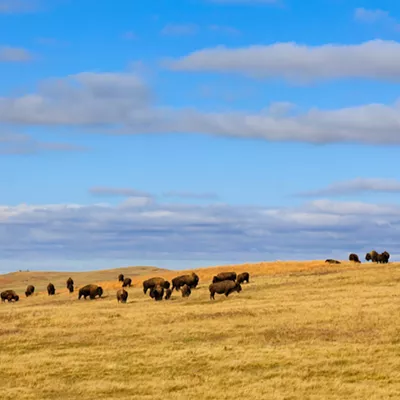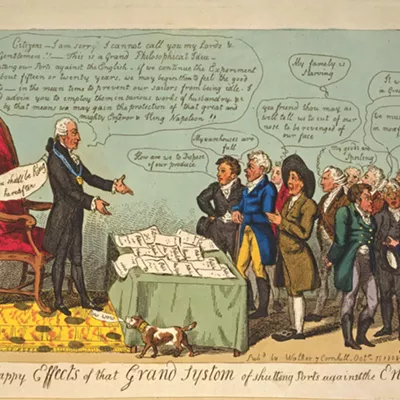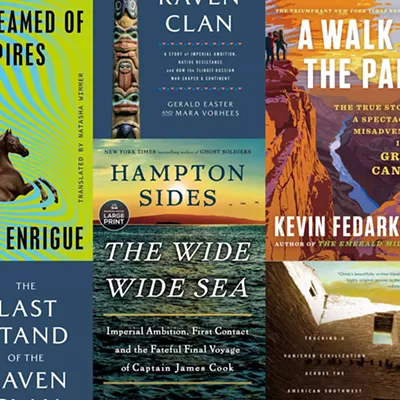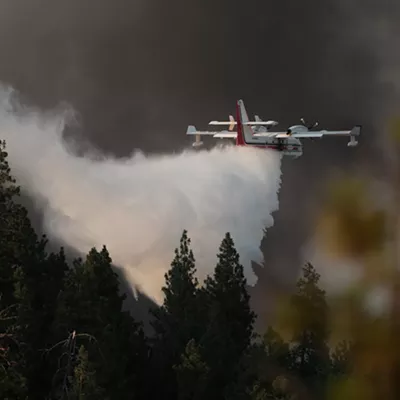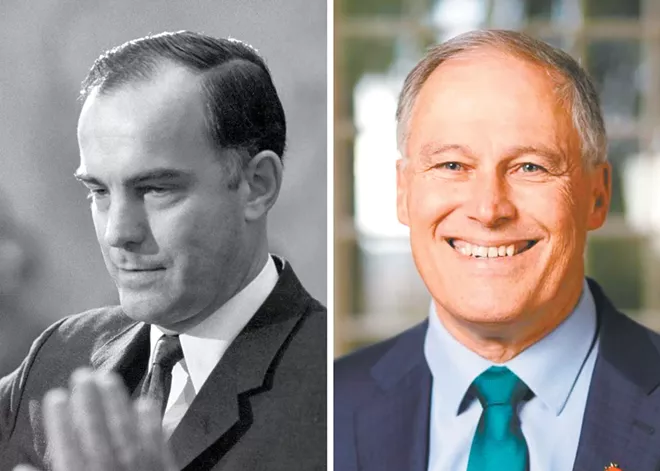
On Tuesday, we will learn what kind of state we want to live in, and about who we are. That's because elections are about more than choosing between candidates.
Shasti Conrad, the chair of the Washington State Democratic Party, told me in an email that "this election is about choice — choices about our bodies, choices about fidelity to our democracy and choices about the future of our planet."
The way I see it, the choices we make next week will reveal two important things. The first is whether voters like where Washington state is headed.
In the last years of Democratic control, the size of state government has more than doubled, new payroll withdrawals were imposed on workers, new services were extended to disadvantaged communities, property taxes went up, utility costs rose, more money was spent on school teacher and administrative salaries, new regulations were imposed on employers, and public safety deteriorated.
Next week's election will tell us whether voters are OK with all that. Or whether they choose change.
If the Democratic candidate for governor, Washington Attorney General Bob Ferguson, wins, it will tell legislators that Washington voters are comfortable with state government expanding, assuming new responsibilities and imposing new taxes.
If the Republican, former King County Sheriff and former Congressman Dave Reichert, wins, it will shoot a flare into the sky signaling that after 40 years of Democratic governors, voters want Washington to move in a different direction.
So when you're choosing which candidate you want to be governor, understand you're also sending a message about whether you like the direction that our state's taking.
Ditto that for many of the initiatives on the ballot.
Under Democratic Gov. Jay Inslee, Washington passed new regulations, standards and taxes aimed at reducing carbon emissions, raising public awareness about climate change, and helping some communities adapt to the new climate.
Some Republicans believed the state was spending the new carbon tax money on new government jobs, rather than on reducing carbon emissions. Hundreds of thousands of voters agreed, and they petitioned the Legislature to end the climate programs and taxes. The Legislature decided to let the people choose.
So, on Tuesday, choose.
Voting Yes on Initiative 2117 tells lawmakers you don't want to spend more on gas and heating oil, and that you want to eliminate many of the state's climate programs. Voting No on Initiative 2117 tells legislators to stay the course on climate change.
Voting Yes on Initiative 2066 tells legislators you want natural gas to remain available. Voting No makes it clear you want Washington to transition away from natural gas.
The race for commissioner of public lands, which might be one of the tighter races, will also send a signal about how we want to manage climate-related choices.
Democratic candidate Dave Upthegrove supports preserving certain public acreage of old forests. Republican candidate Jaime Herrera Beutler argues we need to selectively log those forests, because if we don't, they will burn. Of course, if they burn, the carbon they've sequestered will be released into the atmosphere.
So, in this race, of course voters will be choosing who they want to be our next commissioner of public lands, but their choice will also send a message to legislators and the new governor about how we want our forests managed in an era of climate change and wildfire.
I started out by saying that next week we'll learn two things about ourselves. The first is whether we think our state is moving in the right or wrong direction.
The second thing we will learn is who we've become.
By this time next week, we'll know whether Washington remains a state that leans Democratic but can still vote for thoughtful Republican leaders and proposals. There aren't too many states like that left.
Across the nation, states have become darker red Republican or deeper blue Democratic. If next Tuesday we learn that Washington voters are comfortable with new taxes, support the state's approach to climate change and will only elect Democrats to statewide office, then we'll know Washington has succumbed to the same partisan tribalism that has roped and tied all but a few states.
James Walsh, Washington's Republican Party chair, doesn't think that's what we're going to see on Tuesday. He believes that the state has been dominated by "left-wing extremism" and that "people want a return to the middle — politically, culturally and personally."
Very soon, we'll see if he's right.
If after Tuesday's votes are counted, both Republicans and Democrats were elected to statewide offices, and some initiatives passed while others failed, then we'll know Washington has maintained its independent streak.
I hope that's what we learn. Washington's K-12 school system, its community college system, many of its parks and foundational environmental initiatives, were built when Republicans and Democrats worked together. There are a lot of people who believe that sort of political cooperation is history, but I don't want to believe that. We accomplish the biggest, most bulletproof and enduring change when we build coalitions with people from both parties.
Doing that requires open-minded, independent voters who will vote for both Republicans and Democrats, and who choose policies based on principles, not partisan politics.
Next week, we'll learn what Washington voters want, but the biggest takeaway could be learning whether less partisan, independent voters still exist in Washington. ♦
Bill Bryant, who served on the Seattle Port Commission from 2008-16, ran against Jay Inslee as the Republican nominee in the 2016 governor's race. He lives in Winthrop, Washington.



